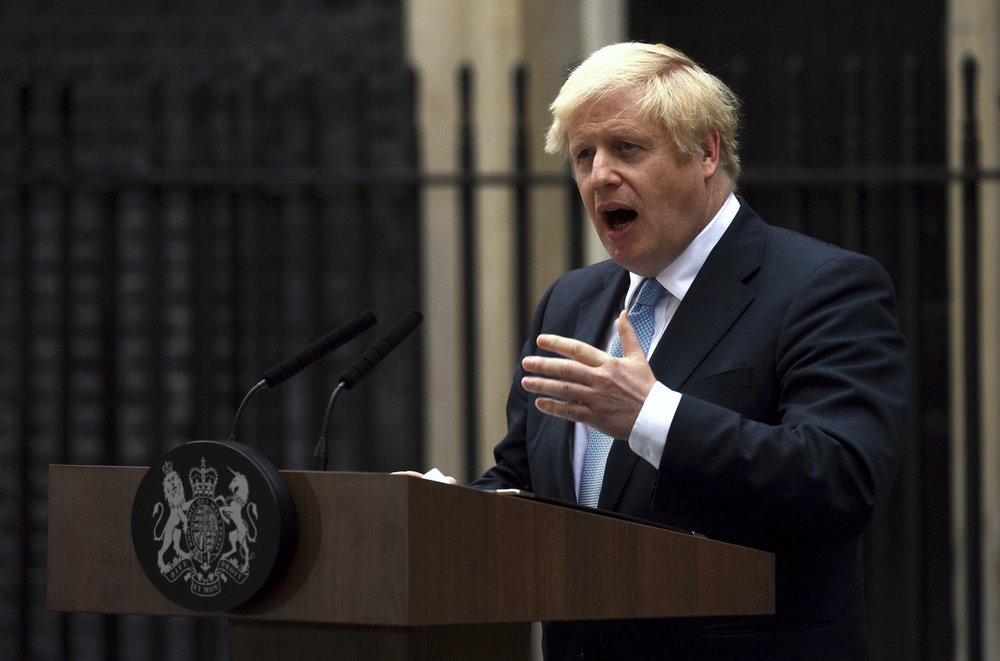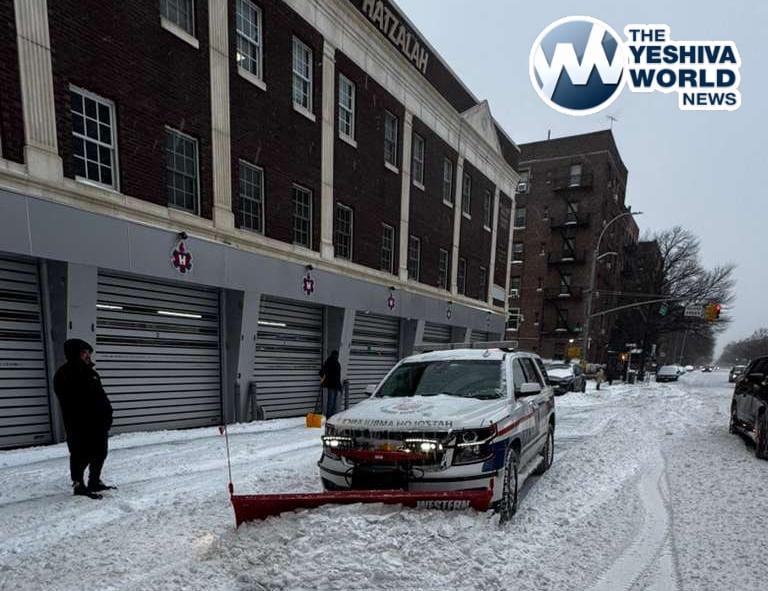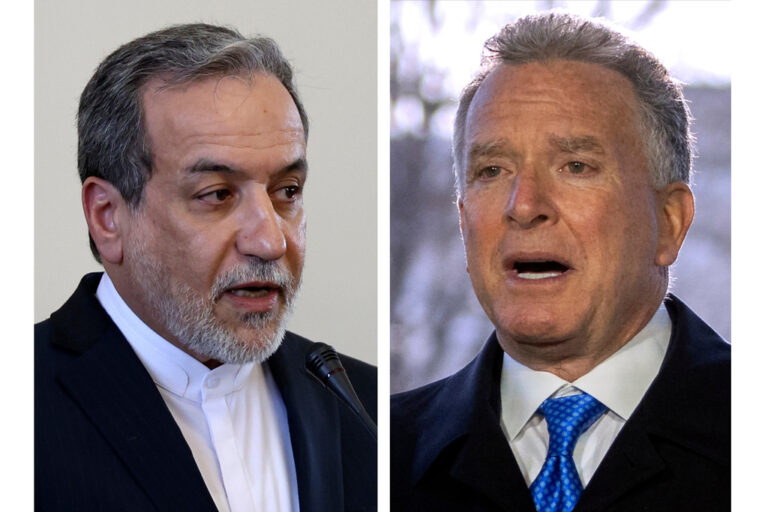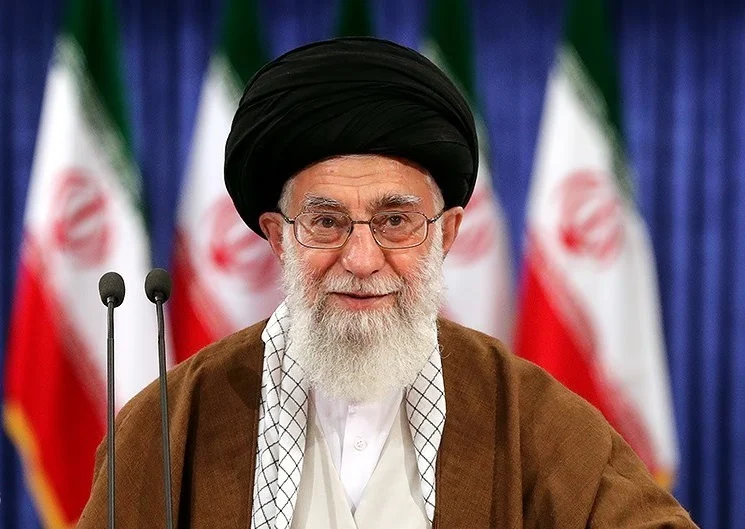British Prime Minister Boris Johnson shot down the notion that he wanted an early election to secure Brexit, insisting Monday that it wasn’t the way to get a deal done.
Johnson decried parliamentary action set for Tuesday that is meant to delay Britain’s departure from the European Union, arguing that it would “chop the legs” out of the U.K. position. He spoke moments after lawmakers posted a copy of the proposed bill on Twitter, making clear that they would press the government to seek a delay if there’s no deal.
“Let’s let our negotiators get on with their work, without that sword of Damocles over their necks, and without an election, without an election,” he said. “I don’t want an election, you don’t want an election. Let’s get on with the people’s agenda.”
Opposition parties are pledging to challenge Johnson’s policy that the U.K. will leave the EU on Oct. 31 even if there is no deal. A no-deal Brexit is considered dangerous because it will sever decades of seamless trade with the EU single market of 500 million, Britain’s largest trading partner.
The febrile atmosphere came after Johnson got tough with members of his Conservative Party who opposed his Brexit plans. The so-called rebels were being warned Monday that they will be expelled from the party if they supported the parliamentary efforts.
Johnson insists the potential for a no-deal Brexit must remain an option in negotiations with the EU. The bloc is adamant it will not renegotiate the agreement struck with former Prime Minister Theresa May on the terms of Britain’s departure and the framework of future relations.
The deal was defeated in Britain’s Parliament three times, largely because of opposition to clauses related to keeping open the border between Ireland and Northern Ireland.
Time is short for lawmakers to block a no-deal Brexit. With 59 days before the withdrawal date, and a lengthy parliamentary suspension in the middle, this week is crunch time.
Johnson, who took power last month with a pledge to go no matter what, insisted that he was not backing down on the promise.
“There are no circumstances under which I will ask Brussels to delay,” Johnson said. “We’re leaving the 31st of October, no ifs or buts.”
Some of the most important votes are those of Johnson’s own party — particularly those who can’t stomach the notion of a no-deal exit. Conservative former justice secretary David Gauke accused Johnson of “goading” party members to vote against the government so that they can be ousted in favor of lawmakers who support the prime minister’s more extreme version of Brexit.
“It’s obviously a particularly confrontational approach and, I think, designed, frankly, to realign the Conservative Party, to transform the Conservative Party very much in the direction of a Brexit party,” Gauke told the BBC.
Rumors had swirled that Johnson might try to trigger a no-confidence vote — taking his message directly to the people to seek their support. But because of a largely untried law passed in 2011, he needs the support of two-thirds of Parliament to seek an election.
In this case, that means getting the support of the Labour Party.
Labour might see such support as a trap — even though the party has been pressing for a general election since Jeremy Corbyn was elevated to leader in 2015. Corbyn urged opposition parties to join together, saying the events in Parliament this week may be the last opportunity to stop a no-deal Brexit.
Former Prime Minister Tony Blair has warned that politicians are at a critical juncture.
“In modern history, there’s never been a more important moment for politicians to put country before tribe and national interest before self-interest,” Blair said in remarks at the Institute for Government on Monday.
(AP)












One Response
If there is to be an election, the date of October 14 has been reported. The fact that all elections in the UK take place traditionally on a Thursday would mean a change in this tradition. However October 14 is the first day of Succos which would mean that, unless a postal vote had been requested, many people who keep Yom Tov will be denied a vote. Posteal votes can be arranged “on line” or by post but how many people will remember to arrange this during the busy Yom Tov period of Yomim Noraim and Yom Kippur. If the election was on October 15, Yon Tov ends in London at 9.00pm which would allow one hour to vote before the polls close. Also not ideal. Watch this space!